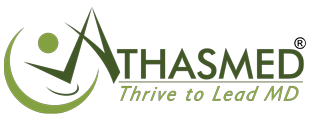“The world cannot ruffle the dignity of a soul that dwells in its own tranquility”
John O’Donahue poet, philosopher and writer (Beauty the Invisible Embrace)
Have you ever just wished that you could navigate daily life with its not infrequent challenges and demands with a Zen-like equanimity and peace? My own exploration began one Christmas Eve years ago at a time when I was juggling a demanding job, three children and a household. I clearly remember a child pushing my last available button and suddenly finding myself on the precipice of saying something that I would later regret. I had been on the verge of an “Amygdala Hijack”. This term was first coined by Daniel Goleman in his 1995 book Emotional Intelligence: Why It Can Matter More Than IQ. It describes the moment when the amygdala, that pint-sized Goliath that processes our emotional responses, is so triggered by a powerful stimulus, that our response completely bypasses our prefrontal cortex (our thinking, rational brain) and we respond from a place of raw, uncontrolled emotion. Our primitive fight-or -flight response is activated and the rest is history. If we are responding to an acute, real danger (think Saber tooth tiger), this response is not only appropriate, it may even be life-saving. However, as a default response to daily, chronic non life-threatening challenges, the emotional, cognitive and physiological impacts are neither appropriate nor valuable, and can be a source of unintended sequelae.

Goleman (1998) defined Emotional intelligence as:
‘…. the capacity for recognizing our own feelings and those of others, for motivating ourselves, and for managing emotions well in ourselves and in our relationships.”
Though frequently touted as a fundamental for excellence in leadership, we may all need our own personal motivation for cultivating this most profound of skills. My moment came on a Christmas Eve in a critical moment as a parent. I had a profound revelation as to the disconnect between who I imagined myself to be; who I aspired to be; and the way in which poorly controlled emotions were going to make me be. A strong inner motivation will bring emotional intelligence alive and inspire action.
What really moves you to want to live a life that is not caught in a maelstrom of emotions and knee-jerk reactions?
- Is it a path towards a greater sense of freedom and wisdom?
- Is it a path towards greater peace and openness to beauty?
- Do you want to bring equanimity into your leadership?
- Is it all of the above or something else?
Whatever you decide, finding a way to govern our emotions is the most vital, human and rewarding of journeys.
“Between stimulus and response there is a space. In that space is our power to choose our response. In our response lies our growth and our freedom.”
Victor Frankl


